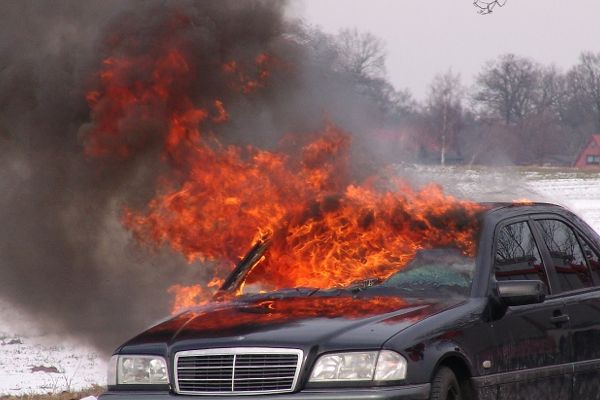Fire Prevention Week - Vehicles

This week is National Fire Prevention Week and an important time to look at preventing fires both here and at home. Today we’ll look at vehicle fires. This applies to automobiles as well at forklifts and other powered industrial equipment we use here.
Between 2002-2005, highway-type vehicle fires accounted for 18% of reported fires and 13% of U.S. deaths. On average, 33 highway vehicle fires were reported per hour. These fires killed one person a day. Cars and other passenger vehicles account for the vast majority of highway vehicle fires and associated losses. In 2002-2005, only 19% of highway vehicle fire actually occurred on highways; 33% occurred on streets, roads or driveways, and 17% were in parking lots.
Most vehicle fires resulted from mechanical or electrical failures or malfunctions.
- Have your vehicles inspected at least annually by a trained, professional technician.
- Watch for fluid leaks under vehicles, cracked or blistered hoses, or wiring that is loose, has exposed metal or has cracked insulation. Have any of these conditions inspected and repaired as soon as possible.
- Be alert to changes in the way your vehicle sounds when running, or to a visible plume of exhaust coming from the tailpipe. A louder than usual exhaust tone, smoke coming from the tailpipe or a backfiring exhaust could mean problems or damage to the high-temperature exhaust and emission control system on the vehicle. Have vehicles inspected and repaired as soon as possible if exhaust or emission control problems are suspected.
If a vehicle fire occurs:
- Stop – If possible, pull to the side of the road and turn off the ignition.Turn off the ignition to shut off the electric current and stop the flow of gasoline. Keep the hood closed because more oxygen can make the fire larger.
- Get Out – Make sure everyone gets out of the vehicle. Then move at least 100 feet away.
- Call for Help – Call 9-1-1. Firefighters are specially trained to combat vehicle fires. Never return to the vehicle to attempt to fight the fire yourself. Vehicle fires can be tricky, even for firefighters.
For more information you can visit www.firepreventionweek.org
